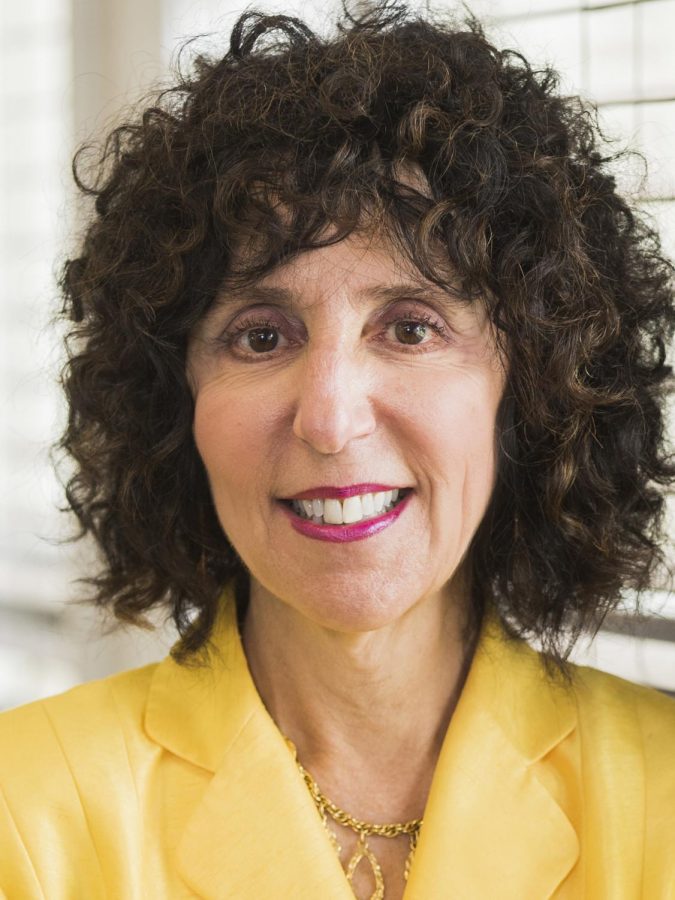Your health matters: Get a handle on stress before stress handles you
NOTE: Welcome to my new column! As many OU students already know, I love my time with students. We thought this column might be one more way for us to spend time together. Let us know what you think. — Ora
When my schedule feels overwhelming, and my to-do list has grown quite long, I take a deep breath and say to myself, “Stay focused.”
That, of course, is easier said than done.
As we know, in life, not everything goes according to plan, but it’s wise to have a plan. Especially at this time in the semester.
With midterms coming up, it’s a good time to have a plan to deal with whatever comes around at test-taking time, which can produce anxiety and stress.
It is important to know some anxiety is actually a good sign. It is your mind telling you to “be prepared.” Anyone who has competed in an athletic competition, debate, or has performed in a concert, play or dance production can relate to that feeling before the curtain goes up. That rush of adrenaline is your mind nudging you to be in top shape for your competition or performance.
But let’s face it: Sometimes, we can also be affected by out-of-control anxiety and stress.
In mid February, many students are rearranging their schedules to find even more time to study. Some of you are feeling pressure; you might be stressed out. A good grade on your midterm exam or paper could put you in position for the type of final grade you’re aiming for.
It’s important to acknowledge you’re feeling stress because you want to do well. You care about your academic career, and many OU students are also juggling demands of work, money issues, family and friends.
So, you’re anxious. Feeling irritable. Restless that there’s not enough time in the day to accomplish what you want. And, despite all the caffeine, you find yourself lethargic, having stomach issues, headaches; maybe you can’t sleep. Maybe you’re irritable or even depressed.
You’re not alone.
About 45 percent of college students feel “more than average stress,” and 88 percent have felt overwhelmed within the past year, according to the American College Health Association National College Health Assessment.
If not managed properly, stress becomes a vicious circle.
It won’t go away with one-too-many drinks of alcohol, getting high or binge eating. Actually, when you wake up after a night of excess you’ll find your stress hasn’t gone anywhere; it’s still staring you in the face.
The three major mental health issues facing college students are stress, anxiety and depression, according to the Collegiate Mental Health 2017 Annual Report.
Frankly, if you don’t get a handle on stress, then stress will handle you.
Consider a few ways of dealing with stress:
- When you have healthy eating habits, your body gets the nutrients it needs to combat stress.
- Exercise produces endorphins that improve sleep and reduces stress. Maybe try a new kind of exercise like yoga, Pilates or take a Zumba class.
- Remember to take a break. Have a hobby? Spend time doing something you enjoy. No pressure.
- Make sure you have a support group of friends, family and counselors. When you lose perspective, they won’t.
- Stay organized. Make and remake a list of your top priorities. There’s time for studying, and time for fun. But you probably don’t want to confuse the two.
- Stay positive. Rise to the challenge. Don’t let negativity – your own or the skepticism from others – put you in the wrong frame of mind.
Many students find their own way of dealing with stress. But there might come a time when you need help. If so, please know an OU counselor is available to meet with you. Consider making an appointment to discuss the best ways to cope with what might seem overwhelming.
Counselors are available at 248-370-3465, or visit: https://www.oakland.edu/oucc/
We are here for you.
Stay healthy, and good luck on midterms.
Ora Hirsch Pescovitz is president of Oakland University. She earned her medical degree from Northwestern University’s Feinberg School of Medicine. She has received numerous awards for her research and teaching.








